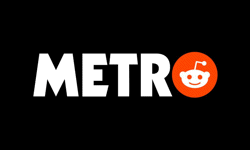A regional newspaper editor recently told me he felt his job was similar to that of a colliery manager during the dismantling of British coal mining in the 1980s.
Just the pits
He was working in an industry of which he was fiercely proud. It had seen better days but still had a huge impact on the community. He had spent all his working life there, starting at the coalface and making his way up to senior management. He understood the economics, the global picture and the impact of new technology. But he felt his bosses were too remote, failed to understand the local issues and that the cost-cutting and non-investment had cut into the bone. He genuinely believed there was a future but doubted his employers shared his view.
He reminded me of Philip Weekes, the mining engineer who rose to be director of the South Wales coalfield during the miners’ strike.
Weekes's commitment to Welsh coalmining and his obvious distaste for the tactics of the NCB put him at odds with Ian MacGregor. When told by the coal board chairman to offer redundancy to every miner in South Wales, Weekes refused. Later, while touring his pits, he was seen sharing a cigarette with pickets. It was a gesture interpreted as collaboration and at Weekes's retirement, a few months later, a message of thanks from the chairman was notably absent.
There is a world of difference between coal mining and the regional press but there are many editors who now find themselves in the same invidious position as Philip Weekes and, privately, are anticipating the same fate.
Like coal mining 25 years ago, regional newspapers are at a crucial crossroads. But the Posts and Chronicles are arguably more important than coal. There are alternative sources of fuel but who will keep communities informed, fight their corners or make the decision-makers accountable if there is no local press?
With that in mind, the editor of this magazine has asked me to write an article entitled ‘what the local press needs to do in 2010’. Given the scale of the challenge, I have called on the great and the good and included a snapshot of their views as a sidebar (see over page). With their help, it emerged quickly that there are two priorities:
1. Improve the content.
So that the paper and the online service are interesting and exciting. Easier said than done. With staffs running at an all time low, too many papers take the "fill" option - and the result is often boring and superficial. There are exceptions, but the migrating readers tell us that not all papers are delighting their readers with must-have content.
This was illustrated clearly to me when I recently carried out an exercise with a daily newspaper. We put a red cross on every item published, over a week, which we thought readers would happily pay for online. The paper, to the growing alarm of the MD, remained largely unsullied.
The Pittsburgh Post-Gazette has launched a website that includes sport, politics and entertainment – all material that doesn’t appear in its printed version. It costs subscribers $36 a year or $3.99 a month. A model for UK regionals? Maybe, but where will the exclusive material come from? And what will its longevity be? The moment it is uploaded, it will cease to be exclusive. Persuading people to part with their cash online, is going to take serious investment in content and marketing. And, realistically, how many annual subscriptions would a paper need to make a difference to the bottom line? At the Pittsburgh paper’s subscription rate, it would take 700 signed-up onliners to cover the cost of one not-so-well-paid reporter.
Without doubt, the priority for newspapers next year must be to beg, steal or borrow resources for strong, exclusive, detailed and interesting local content. Without it, they have nothing – either digitally or in print. They have to stop being precious about where this comes from too, harnessing the community and all it has to offer. They have to find out what the people really want that they cannot get elsewhere? Is it gossip, lists of mourners, a columnist that strikes a chord, new business contacts, dating opportunities, school dinner lists, going out advice, junior sports, video virals, forums, downloads … or something completely different?
2. Chase the money.
Journalism needs to be subsidised. So where is the money going to come from? The cover price? It is more likely the regionals will broaden their audiences by following the giveaway lead of the Manchester Evening News and the Evening Standard. Online charges? Maybe – but they will need to look creatively at the services on offer. Even with bristling content, will there really be enough potential paying customers to make it worthwhile?
This brings us to the core problem. The advertising model needs fixing. There are still businesses that need to peddle their wares but they can now do it without the middleman. Online buyers go direct to the source without bothering to stop off at the classified section. Regional newspapers’ once-loyal customers can now build websites, do their own direct marketing, explore the many other online options or stick a poster in their window. But if newspaper companies can offer effective ways for businesses to reach their customers – reasonably priced, with immediacy and perhaps on a no-win, no-fee basis – they might just claw back a bigger share of the cake. One thing is certain - when the economy recovers, advertisers will return to spending. If I was running a regional newspaper, I would be out there talking to businesses, finding out what returns they expect and what pricing structure would make them spend their budget with us. I would be considering commission-based services, only charging customers once we sold their house or their car or had delivered a customer over their threshold. I would be offering to be their agency, looking after their campaigns, design and websites. Mostly, I would set about convincing them that we were not trying to pick their pockets.
So there’s the answer – real investment in exclusive content, both in print and online, and a complete rebuilding of the revenue model, accepting along the way that the profits of yesteryear are never coming back.
Is it going to happen? Perhaps … but not yet. Because what many regional newspapers really need to do in 2010 is revisit their ownership. As long as the revenue gleaned from the butchers, bakers and candlestick-makers is used to pay off corporate debts, local newspapers will find it increasingly difficult to compete.
The ownership question
There is a model that will work – small, locally owned, innovative information companies run by hard-working, committed entrepreneurs who are in touch with the community, unburdened by major debts and prepared to run their business on realistic targets. I have no doubt that the likes of the Newark Advertiser, Newbury Weekly News and the Cumberland News will still be thriving once the recession is over.
But for many newspapers and the companies who own them, this isn’t an option.
I recently asked a City financier what it would take for him to support a newspaper buyout. The answer was short. He couldn’t find investors for print, in any shape or form, unless the deal was a staggeringly good one. The difference between the owners’ valuation, and what the moneyman believed to be realistic, was colossal.
On top of that, there are still profits being made by newspapers – even during the recession. Gannett, the parent company of Newsquest, netted $70m in the second quarter of this year compared to a loss last year. It reported a profit of $73.8m for the third quarter, exceeding all Wall Street predictions. These figures, as we all know, come mainly from cost cutting … not growth. So, unable to sell and with revenues declining, newspaper companies have little option but continue to draw as much profit as they can. Manage the decline carefully, keep it tight, don’t invest and there could be a good few fertile years in the cash cow yet.
So, unfortunately, what regional newspapers must really do in 2010 is brace themselves for more of the same. There will be more synergy between the groups. They are, for example, preparing for this by standardising their page sizes. But mostly there will be further reduction of costs.
Rising from the ashes
My editor friend may take a crumb, albeit a very small one, of comfort from Hatfield Colliery, once at the heart of the miners’ strike. It closed down in 2001 but there are now 360 miners working the seam. Hatfield will soon provide the fuel for a new breed of carbon-friendly power stations.
There are new owners, new technology and the 360 pitmen are a far cry from the 3,000 once employed at the coalfield. But it is still there – profitable and playing an integral part in the community.
Newspapers can undergo a similar transformation - and with considerably less pain and in a timescale far shorter than 25 years. But if a change in ownership, an upturn in revenues or a radical new approach by existing companies doesn’t come soon – there will be nothing left to extract at the end. Except dust.
What do regional newspapers need to do in 2010?
“Drop the prejudice against the alleged inferiority of weekly newspapers and go weekly. Better to create a model that makes money and keeps readers, than to limp along to death by a thousand cuts.”
Anita Syvret (ex-editor Gloucestershire Echo), Syvret Media
“Use the internet for conversation around your brands and continue to publish as many names, faces and events as you can to ensure you remain at the centre of local lives.”
Andy Cooper, editor, North Devon Journal
“Make sure our editorial content is 'truly' close to the community we serve and that we provide a complete service encompassing all aspects of new media.”
Jeremy Willis, chairman, Newbury Weekly News Group
“Build for the future by bringing on people who have the enthusiasm and sheer excitement of doing journalism to surprise and delight every day.”
Alan Geere, editorial director, Northcliffe Media South East
“Sort out an internet strategy that makes sense and stop chasing a business model that is fundamentally flawed. People want to access information digitally and in a range of formats, but until publishers can monetise this, they only risk damage to their core product.”
Dominic Fitzpatrick, chief executive, The Irish News
“Paid-fors need to improve drastically the quality of reporting and editing and understand that online editions make sense only if they offer unique content that readers are prepared to pay for. All this pre-supposes owners who are prepared to accept seriously unimpressive returns for a very long time. I'm not holding my breath.”
David Kernek, former editor - The Northern Echo, York Evening Press and Bath Chronicle
“We need to recognise the potential for, and ability of, editorial departments to make a commercial contribution to our businesses.”
Marc Astley, editor, Express & Echo / Mid Devon Gazette series
“Stop talking ourselves down, recognise the enormous brand value of our titles, and hammer home the fact that our newspapers and associated websites have a combined audience that is actually growing.”
Peter Barron, editor, The Northern Echo
“Look at our cover prices - are some titles too expensive for what is on offer. If so, cut the price and make the most of the story!”
Nigel Pickover, editor, Evening Star, Ipswich and president of the Society of Editors
“Compelling, unique content local newspapers where the turn of every page brings serendipity - to get people talking. Conversation-driven local digital sites - that keep people talking.”
Alex Leys, deputy managing director, Northcliffe Media Limited
“Regain confidence in newspapers. The BBC is doing enough to destroy our industry without us helping it through lack of self-belief.”
Derek Tucker, editor, Press and Journal, Aberdeen
“Stop giving news content away free on the website.”
Jerry Ramsden, managing director, Jersey Evening Post
“Sustain our newspapers with tip-top relevant journalism and to provide 'best value' platforms for advertisers - especially in the light of unwelcome competition from council publications. This can be helped by individual centres working together and becoming a stronger collective voice.”
Joanna Parlby, managing director, Newark Advertiser










